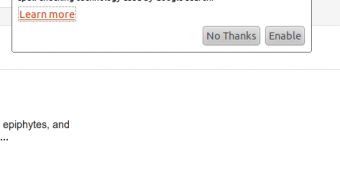Since Google is based on Chromium, an open source project, many of the new features, improvements and changes are documented as soon as they go live in the latest dev channel builds or even the Chromium builds, as long as you're willing to scour the Chromium and WebKit bug trackers.
Google's Peter Beverloo keeps track of all the big changes in Chrome in a weekly roundup. He focuses on the features that interest developers rather than regular users, but some interesting info trickles through.
In the last week, Chrome got quite a lot of new features. One thing users won't probably notice but which makes a huge difference is an improvement in JPEG decoding speed.
JPEG images, the vast majority of images online, are decoded 9 percent faster, which means that they load 9 percent faster. Considering that there can be tens of images on any single page, the effect will be substantial.
Granted, JPEG decoding is already fast enough that users will be hard pressed to notice any difference, but every little improvement adds up to make a faster browser.
Also new in the latest Chromium/Chrome are "cloud" spelling suggestions. A few months back Chrome introduced the ability to get suggestions from Google's spelling correction service, used in the "Did you mean"-type features in Google search.
The feature is now enabled on all platforms, meaning that Chrome and Chromium users can get greatly improved spelling suggestions regardless of where they're using the browser.
Cloud spelling suggestions still have to be enabled, you can right click on any input field go to Spell-Checker Options and select "Ask Google for spelling suggestions." You can stop receiving spelling suggestions from Google via the same path, just click on "Stop asking Google for spelling suggestions."

 14 DAY TRIAL //
14 DAY TRIAL //